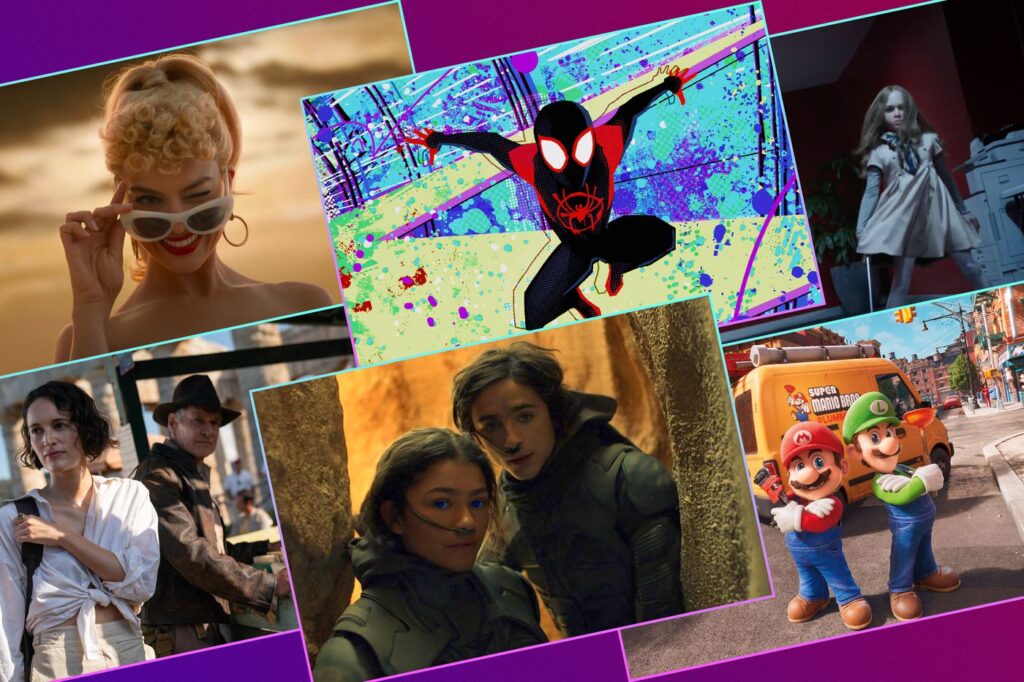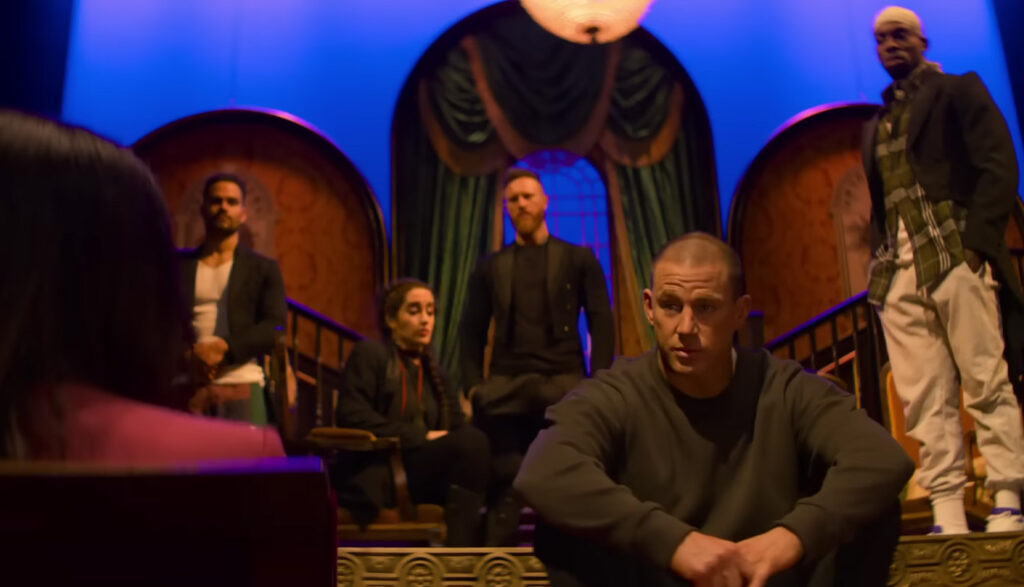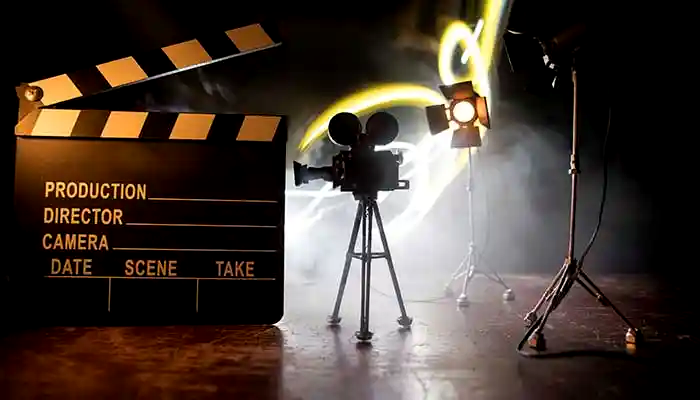In the world of entertainment, cinema holds a special place. It has evolved over the years, captivating audiences and leaving an indelible mark on our culture. This article delves into the fascinating journey through film history, tracing the evolution of cinema from its humble beginnings to the present day.
Exploring the evolution of cinema is not merely an academic pursuit. It’s a journey that allows us to appreciate the cultural significance of films, the creativity of filmmakers, and the profound impact this medium has on our lives. In this article, we embark on a journey through time, from the birth of cinema to the digital age, to unravel the captivating story of how movies have evolved.
Read More: Magic Movie making for Entertainment in 2023
Contents
- 0.1 The Birth of Cinema (Late 19th Century)
- 0.2 The Golden Age of Hollywood (1920s-1950s)
- 0.3 World Cinema Takes Center Stage (1960s-1970s)
- 0.4 The New Hollywood Era (1980s-1990s)
- 0.5 Digital Revolution (2000s-Present)
- 0.6 The Art of Filmmaking
- 0.7 Cinematic Movements and Styles
- 1 The Impact of Technology on UK Cinema
- 1.1 Silent Era Advancements
- 1.2 The Transition to Sound
- 1.3 Colour Cinematography
- 1.4 Digital Revolution
- 1.5 CGI and Visual Effects
- 1.6 Streaming Services and On-Demand Viewing
- 1.7 Virtual Reality (VR) and Immersive Experiences
- 1.8 Challenges and Opportunities
- 1.9 Cinema and Its Impact on UK Society
- 1.10 Globalization of Cinema
- 1.11 Cinema in the Digital Age
- 1.12 Challenges and Opportunities
- 1.13 FAQs
- 1.14 Conclusion
The Birth of Cinema (Late 19th Century)
The Lumière Brothers and Their Cinematograph
Our journey begins in the late 19th century when two French brothers, Auguste and Louis Lumière, invented the Cinematograph. This revolutionary device allowed multiple people to watch a moving picture simultaneously. Their first film, “Workers Leaving the Lumière Factory,” marked the birth of cinema.
Silent Films: A Pioneering Era
The early days of cinema were characterized by silent films, where actors communicated through gestures and expressive facial expressions. These silent classics like “The Great Train Robbery” laid the foundation for storytelling through visuals.
Georges Méliès: The Master of Special Effects
Georges Méliès, a visionary filmmaker, wowed audiences with his imaginative use of special effects. His film “A Trip to the Moon” (1902) remains an iconic example of early cinema’s creative potential.
Stay tuned as we journey through the Golden Age of Hollywood, the global influence of world cinema, the digital revolution, and much more in the world of film history.
The Golden Age of Hollywood (1920s-1950s)

The Studio System
The 1920s saw the emergence of the Hollywood studio system, where major studios controlled every aspect of film production, from casting to distribution. This era gave rise to legendary studios like MGM and Warner Bros.
Iconic Stars of the Silver Screen
The Golden Age of Hollywood introduced us to legendary actors and actresses like Charlie Chaplin, Marilyn Monroe, and Humphrey Bogart, whose performances continue to captivate audiences today.
The Impact of Sound: Transition to Talkies
The introduction of synchronized sound in “The Jazz Singer” (1927) revolutionized filmmaking, leading to the transition from silent films to talkies. This technological leap forever changed the cinematic landscape.
World Cinema Takes Center Stage (1960s-1970s)
French New Wave: A Revolution in Filmmaking
The French New Wave movement challenged traditional filmmaking conventions, giving birth to innovative directors like Jean-Luc Godard and François Truffaut.
The Italian Neorealism Movement
Italian neorealism brought raw, unfiltered storytelling to the forefront, depicting the struggles of everyday people in post-war Italy.
The Influence of Asian Cinema
The 1960s and 1970s saw the rise of Asian cinema, with directors like Akira Kurosawa and Satyajit Ray leaving an indelible mark on the global film industry.
The New Hollywood Era (1980s-1990s)
The Rise of Blockbusters
The 1980s witnessed the rise of blockbuster films like “Star Wars” and “Indiana Jones,” setting new standards for entertainment.
Steven Spielberg and George Lucas: Shaping the Industry
Directors Steven Spielberg and George Lucas became synonymous with cinematic innovation, introducing groundbreaking special effects and storytelling techniques.
Independent Cinema: A Counterpoint
While blockbuster films dominated, independent cinema emerged as a counterpoint, focusing on intimate storytelling and unique perspectives.
Digital Revolution (2000s-Present)
Advancements in Special Effects
The 21st century they brought remarkable advancements in CGI and visual effects, enabling filmmakers to create breathtaking worlds and creatures.
Streaming Services: Changing the Game
The digital age ushered in the era of streaming services like Netflix and Amazon Prime, altering the way we consume and produce content.
Diversity and Inclusion in Film
Efforts to diversify the film industry have led to more inclusive storytelling, with films like “Black Panther” and “Parasite” making history.
The Art of Filmmaking

Behind the Scenes: Directors, Producers, and Screenwriters
Filmmaking is a collaborative art, with directors, producers, and screenwriters playing crucial roles in bringing stories to life.
Cinematography: Painting with Light
Cinematographers use light and framing to create visual poetry, enhancing the emotional impact of films.
The Role of Music in Film
Film scores and soundtracks add depth and emotion to cinematic experiences, making music an integral part of storytelling.
Cinematic Movements and Styles
Film Noir: Shadows and Intrigue
Film noir, with its dark, mysterious themes and morally complex characters, continues to inspire modern cinema.
Surrealism in Cinema
Surrealism challenges reality, taking viewers on a journey through dreamlike landscapes and abstract narratives.
Documentary Filmmaking: Capturing Reality
Documentaries offer a glimpse into real-life stories, shedding light on issues and inspiring change.
The Impact of Technology on UK Cinema

The United Kingdom has a rich cinematic heritage, and like the rest of the world, it has been significantly influenced by technological advancements in the film industry. From the earliest days of silent films to the digital age, technology has played a pivotal role in shaping the landscape of UK cinema.
Silent Era Advancements
In the early 20th century, the UK cinema industry witnessed significant advancements in silent film technology. Innovations in film projectors and sound systems improved the overall cinematic experience. Pioneering British filmmakers like Alfred Hitchcock and Cecil Hepworth made notable contributions to silent cinema.
The Transition to Sound
The introduction of sound in films, known as “talkies,” revolutionized the industry worldwide. In the UK, this transition was marked by the release of films like “Blackmail” (1929), directed by Alfred Hitchcock. Sound technology enhanced storytelling and opened up new opportunities for actors and composers.
Colour Cinematography
The advent of colour cinematography brought a new dimension to UK cinema. Films like “The Red Shoes” (1948) showcased the beauty and artistic possibilities of colour on screen. This technology allowed filmmakers to create visually stunning and immersive worlds.
Digital Revolution
The digital revolution in filmmaking transformed the way movies are produced, distributed, and exhibited. The United Kingdom has been at the forefront of this technological shift, with studios like Pinewood and Shepperton embracing digital filmmaking techniques. This transition allowed for more flexibility, cost-effectiveness, and the creation of visually captivating films.
CGI and Visual Effects
The UK has made significant strides in computer-generated imagery (CGI) and visual effects. Studios like Framestore and Industrial Light & Magic (ILM) London have contributed to blockbuster films with groundbreaking visual effects. Movies like the Harry Potter series and “Gravity” (2013) showcased the UK’s prowess in this field.
Streaming Services and On-Demand Viewing
The rise of streaming services like Netflix and Amazon Prime has changed how UK audiences consume content. This technology allows viewers to access a vast library of films and TV series at their convenience. It has also created opportunities for British filmmakers to reach a global audience through these platforms.
Virtual Reality (VR) and Immersive Experiences
Virtual reality (VR) and immersive experiences are on the horizon for UK cinema. VR cinemas and experiences provide audiences with an entirely new way to engage with storytelling. British creators are experimenting with VR to push the boundaries of narrative and immersion.
Challenges and Opportunities
While technology has brought numerous opportunities to UK cinema, it has also presented challenges. The industry must navigate issues such as piracy, digital distribution rights, and the preservation of analogue films. Additionally, the COVID-19 pandemic accelerated the shift towards digital and streaming, forcing traditional cinemas to adapt to changing viewer preferences.
In conclusion, technology has been a driving force in the evolution of UK cinema. From the early days of silent films to the digital age, technological innovations have enhanced storytelling, visual effects, and the overall cinematic experience. As technology continues to advance, the UK cinema industry will undoubtedly explore new frontiers in filmmaking, offering audiences even more exciting and immersive cinematic adventures.
Cinema and Its Impact on UK Society
Film as a Mirror of Culture
Cinema often reflects the values, beliefs, and challenges of society, serving as a cultural mirror.
Controversies and Censorship
Throughout its history, cinema has faced controversies and censorship, raising questions about artistic freedom and responsibility.
Globalization of Cinema
Hollywood’s Global Reach
Hollywood’s influence extends far beyond American borders, shaping global entertainment and culture.
The Rise of International Film Festivals
International film festivals like Cannes and Venice provide a platform for diverse voices and storytelling.
Cinema in the Digital Age
YouTube and the DIY Filmmaker
Platforms like YouTube have democratized filmmaking, allowing aspiring creators to showcase their work to a global audience.
The Future of Virtual Reality in Film
Virtual reality promises to revolutionize storytelling, offering immersive experiences like never before.
Challenges and Opportunities
Sustainability in Film Production
The film industry faces challenges related to sustainability, prompting a shift towards eco-friendly practices.
The COVID-19 pandemic has disrupted the film industry, forcing it to adapt and innovate in uncertain times.
Read More: Streaming Devices: Which One is Best for You in 2023?
FAQs
What is the first-ever film made?
The first-ever film is often attributed to the Lumière Brothers’ “Workers Leaving the Lumière Factory” (1895).
Who is considered the greatest filmmaker of all time?
The title of the greatest filmmaker is subjective, but figures like Alfred Hitchcock, Stanley Kubrick, and Akira Kurosawa are often mentioned as iconic directors.
How has the role of women in cinema evolved?
The role of women in cinema has evolved significantly, with more opportunities for female directors, writers, and actresses today compared to the past.
What impact has streaming had on traditional cinema?
Streaming services have disrupted traditional cinema by changing how we consume films, leading to debates about the future of movie theatres.
Are there any hidden gems in the world of cinema?
Absolutely! Many lesser-known films offer unique storytelling and artistic value. Exploring film festivals and independent cinema can uncover these hidden gems.
Conclusion
As we conclude our journey through the evolution of cinema, it’s clear that this art form has continually adapted and innovated to capture the hearts and minds of audiences worldwide. From the Lumière Brothers’ Cinematograph to the digital age of streaming, cinema remains a powerful medium that reflects our culture, challenges conventions, and sparks our imagination.



